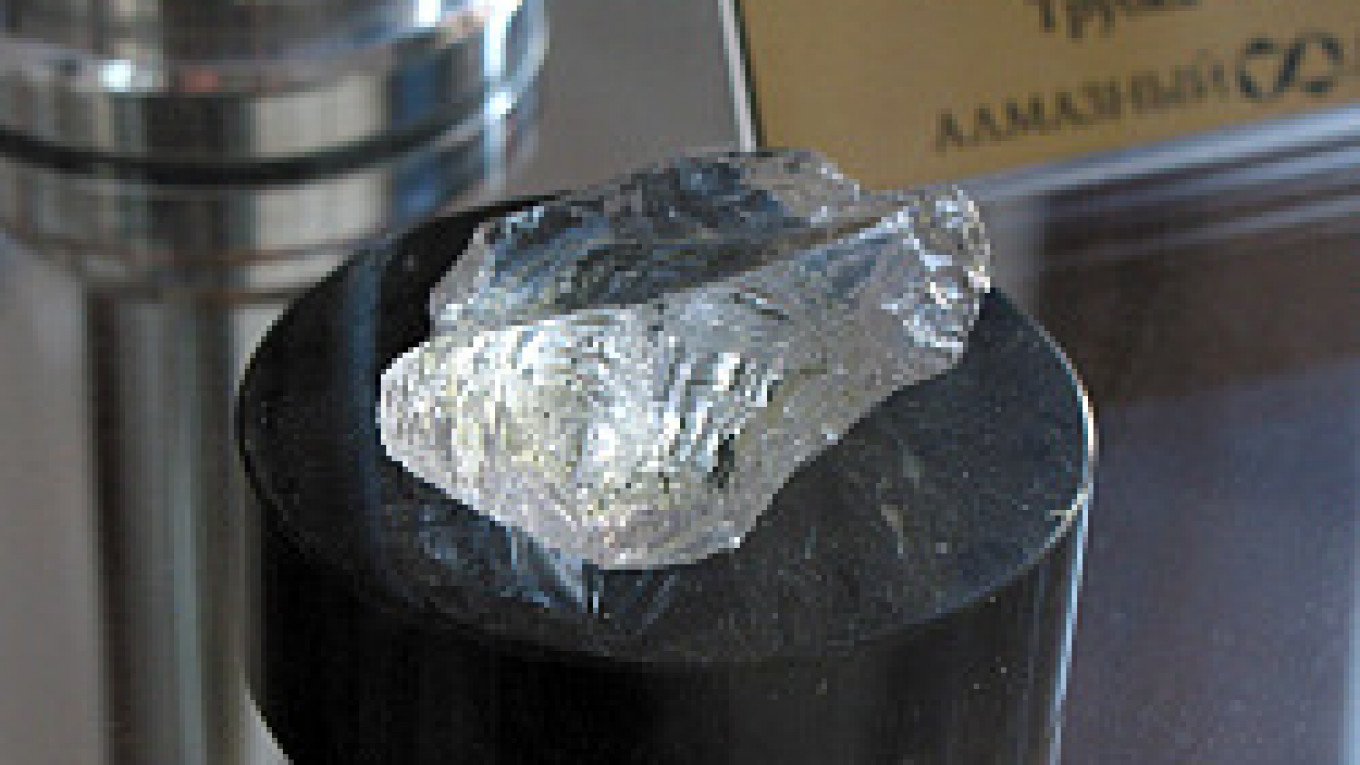The volume of trade between the world's two largest diamond companies, which together mine 60 percent of rough diamonds globally, will have to be reduced from $600 million this year to $500 million next year and $400 million in 2008, eventually falling to zero in 2009, the European Commission said Wednesday in a statement.
The deal, which settles a long-running investigation by the EU into a possible breach of competition laws by De Beers, will open up Alrosa's full production of gems to market competition, the commission said.
It will also allow Alrosa to challenge "De Beers' long-running primacy," EU Competition Commissioner Neelie Kroes said in a statement Wednesday.
Cutting off the supply of rough diamonds from Alrosa, many of which are of a rare grade that is found mainly in Russia, is likely to trigger a further fall in De Beers' share in the global rough diamonds trade, analysts said. Alrosa's position on the global market is likely to improve due to the deal, but this may not happen immediately because it will have to find new clients for its gems.
Reacting to the Commission's ruling, Alrosa noted that the settlement went much further than the original proposal submitted by both companies last summer. The companies had suggested De Beers should be allowed to continue buying $275 million worth of diamonds annually after 2008, thus leaving Alrosa with a guaranteed buyer for 10 percent of its rough diamonds production.
"Given this difference, ... Alrosa will review all its options after it has had an opportunity to study the full text of the European Commission's decision," Alrosa said in a statement Wednesday, but it declined to comment further.
De Beer's share of world rough diamond sales could plunge by 5 percent to 44 percent by 2009, independent diamond expert Richard Wake-Walker said by telephone from London on Wednesday. Alrosa's share should rise by at least 5 percent to comprise over 23 percent of the market as a result of the new settlement, he said.
The EU ruling will also mean that the Russian state monopoly will need to organize more diamond auctions in Moscow and abroad and seek new clients in Antwerp, Belgium, where the largest volume of rough diamonds is traded, Wake-Walker said.
"In the last two years, Russia has been aggressively selling rough gems outside of De Beers in order to build their own market strategy. They are trying to develop a new clientele. They have to," Wake-Walker said.
Alrosa and Luxembourg-registered De Beers have been on the EU's radar screen since 2001, when the European Commission began an investigation into De Beers' trade agreements. In 2001, De Beers scooped up almost half of Russia's $2 billion diamond production, the commission's web site said.
De Beers accounted for 40 percent of the world's annual extraction of diamonds in 2004, compared with Alrosa's 20 percent. The difference between sales and mining capacity forces De Beers to buy uncut gems from Alrosa, as well as from other, smaller market players.
De Beers is 45 percent owned by world's second-biggest mining firm, Anglo-American. The Botswanan government controls a 15 percent stake, and the Oppenheimer family holds the rest.
A Message from The Moscow Times:
Dear readers,
We are facing unprecedented challenges. Russia's Prosecutor General's Office has designated The Moscow Times as an "undesirable" organization, criminalizing our work and putting our staff at risk of prosecution. This follows our earlier unjust labeling as a "foreign agent."
These actions are direct attempts to silence independent journalism in Russia. The authorities claim our work "discredits the decisions of the Russian leadership." We see things differently: we strive to provide accurate, unbiased reporting on Russia.
We, the journalists of The Moscow Times, refuse to be silenced. But to continue our work, we need your help.
Your support, no matter how small, makes a world of difference. If you can, please support us monthly starting from just $2. It's quick to set up, and every contribution makes a significant impact.
By supporting The Moscow Times, you're defending open, independent journalism in the face of repression. Thank you for standing with us.
Remind me later.


